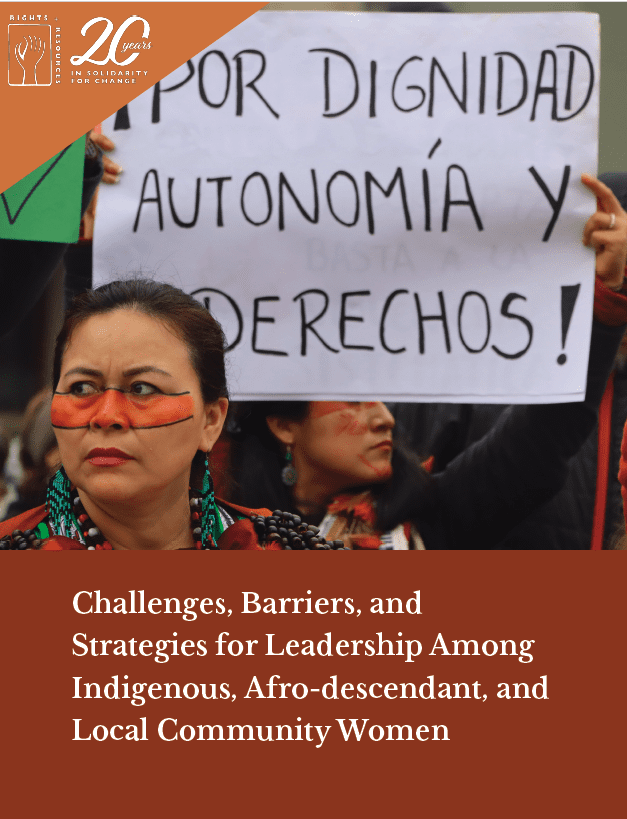Date: February 13, 2025
After decades of struggle, some women from IP, ADP, and LC organizations in Latin America have achieved conditions of equality and equity, successfully overcoming instances of violence and/or gender discrimination within their organizations. However, for many others, barriers still exist.
Given women’s relevant role in advancing the land rights of IPs, ADPs, and LCs, it is crucial to recognize the strategies devised by women involved in the RRI coalition to promote equal rights and environments free from gender-based violence and discrimination, which is ultimately what enables them to assume their leadership roles. This recognition enables us to gather lessons learned and share these with partner organizations within the RRI network.
As part of RRI’s regional strategy in 2023, the coalition agreed to conduct an analysis of the enabling contexts and challenges related to fostering Indigenous, Afro-descendant, and local community women’s leadership skills based on the life experiences of three women in Latin America who have achieved leadership roles in their families, organizations, communities, and at the national and international levels.
Analyzing the three women leaders’ life and leadership trajectories made it possible to identify the enabling conditions and barriers that the women overcame in an effort to make their voices, thoughts, and leadership abilities known in the different types of organizations, and how their leadership has opened doors for other women in their town or community.
The consultants who participated in this study are María Elvira Molano, María Victoria García Vettorazzi, and Eliza Plufcker Herrera.
This report is also available in the following languages:
https://doi.org/10.53892/GSOW5371

